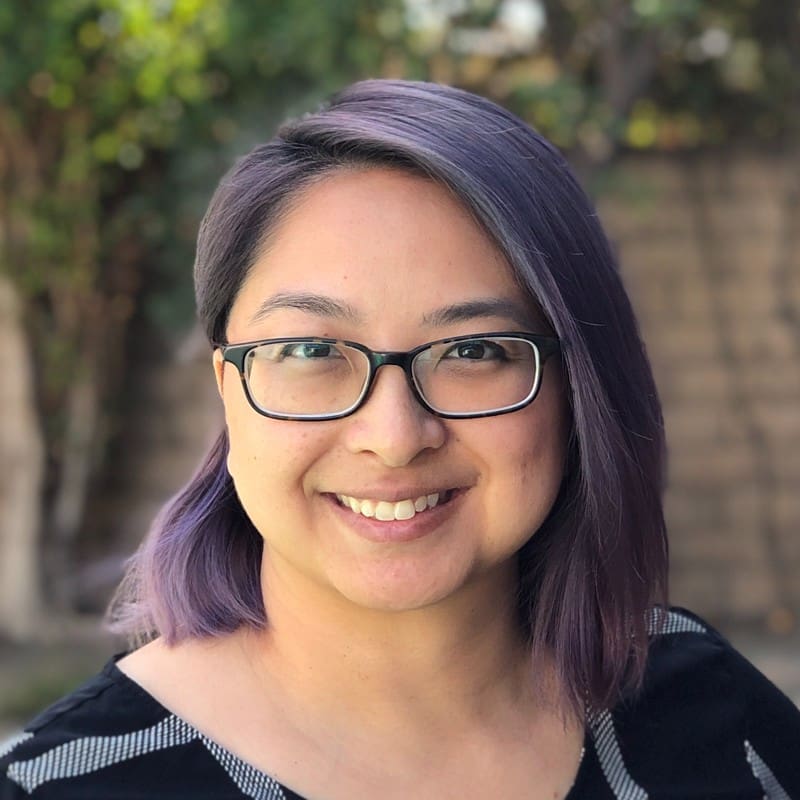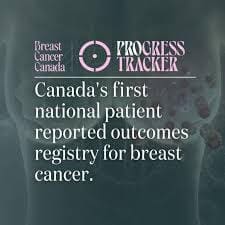Guest post by Alice Zhao
My breast cancer journey began in a way that is familiar to many women—a routine mammogram that turned out to be anything but routine. However, on the journey from my mammogram to my breast cancer diagnosis, I was blindsided by the deafening silence from the very people I expected to guide me through the process.
My first mammogram, and a lump found
I had turned 40 during the COVID lockdown, skipped my yearly doctor’s exam and missed the cue that normally kicks off the process for annual mammograms. At the same time, moved across the country. So, it took me longer to get settled. Unsurprisingly, I dragged my feet looking for a new doctor. When we finally did have our first appointment, my new doctor reminded me that I was well past due for my mammogram. I begrudgingly put one on the calendar.
I went to my first mammogram expecting it to be the first of many boring, routine exams. My boobs would be squished. I would complain about it to my friends after. I’d get an “all clear” and move on with my life. So I was surprised, but not alarmed when I was asked to come back for further testing because I had dense breasts.
However, in between those visits, I discovered a lump that I swore wasn’t there before. I hastily texted my sister, who is also a doctor, and stupidly asked, “Can a mammogram cause a lump? Maybe it turned into a cyst?” I imagine she rolled her eyes pretty hard before she texted me back Her answer, short and sweet was, “No.” And yet, despite this, I was convinced that it would all end up being a whole lot of nothing.
A breast biopsy and confusion
I returned for the ultrasound-guided mammogram follow-up. I sat in the quiet waiting room after the procedure. The technician returned and simply said, “We recommend you get a biopsy. Here’s the phone number to call.” I remember staring at her blankly. “Should I… be concerned?” I asked. Not willing to venture an opinion, she simply repeated herself. “Just get the biopsy.” That was it. No report, no detailed explanation, and absolutely no one to help me understand what was happening. There was no meeting with a radiologist or a doctor. There was no one to sit with me to explain that I might have cancer. I thought perhaps my own primary care doctor would call to explain. No call ever came. I was left with nothing but a piece of paper with a phone number to call and instructions to schedule my biopsy.
Am I going to die while I wait for a breast biopsy?
When I finally called the number I had been provided, I had a cold, dispassionate exchange with a scheduler. I wasn’t a person to that individual. It was just a task to be completed. There was no sense of urgency, no compassion, and no understanding of my fear. On one hand, I can’t blame this person. Her sole job was to put my name into their system. She has no context or background. She doesn’t know that I am now fretting that I have cancer.
If the impersonal exchange over the phone wasn’t frustrating enough, the earliest available appointment for a biopsy was six away. All I could think was, “Am I going to die while I wait for a biopsy?”
“Highly suggestive of malignancy”
I had my biopsy appointment on the calendar but that wasn’t enough. I was now desperate for answers. I called my doctor’s office and practically had to beg to get a copy of my radiology report. The nurse I spoke with was shocked that nobody on their staff had talked to me. No one had instructed me to log into the patient portal. Cold comfort. And even with this, I still wasn’t offered a conversation with the radiologist.
When I finally saw my radiology report, it was filled with medical jargon and terminology that I, as a non-medical person, couldn’t possibly understand. I did, however, see at the bottom the following words: “BI-RADS 5 Highly Suggestive of Malignancy.”
In desperation, I called my doctor-sister and sent her a copy of my report. As she read it, she only said “Oh dear.” I didn’t even want to hear what she had to say next.
I felt like the ground had just been pulled out from under me.
Why wasn’t this information shared with me earlier? Why did no one bother to explain the findings to me in person? How could it be that my sister had to be the one to break the news to me over the phone that I likely had cancer?
Taking charge
I eventually was able to grab an earlier spot for the biopsy. On that day, I felt a little smarter and bolder. So I looked at the radiologist performing the procedure and asked “Who’s going to call me and tell me the results?” She looked me in the eyes, put her hand to her heart and said, “Me. I will call you”. I nearly cried from the relief I felt from her conviction.
From that moment forward, my journey unfolded as one might expect. True to her promise, the radiologist called me two days later to confirm that it was indeed breast cancer. Five days after that, I met with a breast surgeon and oncologist where I learned I was diagnosed with Her2+ Invasive Ductal Carcinoma. We had a plan.
I am happy and grateful to share that the rest of my journey was full of support and care. Once I had my care team in place — my oncologist, the infusion center team, my breast and plastic surgery team –I felt in good hands.
How to advocate for yourself
As I learned from my own life-upending journey, we assume that every medical staff member will communicate everything we need to know. But the truth is, that medical staff are scattered across departments, work in different offices and often fail to communicate with each other. Our health systems are more disparate than we realize. So I learned the hard way that we must advocate for ourselves early and often.
Here’s some advice I want to pass along:
- Request Copies of All Medical Reports: If you haven’t been given a copy, always ask for a copy of any medical report or imaging (mammogram, biopsy, scans) and keep them organized for your records. As a new patient, I didn’t have an online account with notifications set up. The staff didn’t ask and assumed I already had a copy through their portal. If your provider doesn’t use a patient portal you can also use a tool like PocketHealth to access your reports and imaging. Use this information to advocate for yourself.
- Seek Clear Explanations: Insist that a healthcare professional (doctor, nurse, nurse practitioner, radiologist) explain your reports and results in plain, jargon free terms you understand. I will never know why no one called or spoke with me in the days after my follow-up mammogram, but I know how terrified I was. No one should be left in the dark about a procedure’s outcomes– especially if a follow-up is required.
- Push for Timely Scheduling: Call the office administrator or scheduler directly to expedite appointments, tests, or procedures—be persistent if needed. I learned that the best course of action is to take the first appointment they offer you because it gets into the system. Then call frequently to check for new openings. Cancellations happen all the time and you might be able to take advantage of that.
- Prepare Questions: Before appointments, write down questions or concerns so you can ensure they are addressed during your visit. There is no stupid question. We’re going from 0 to cancer and we are allowed to ask every question. If you aren’t sure what to ask your surgeon, medical oncologist, radiologist or really, any clinician, you can use AskEllyn.ai/chat/. She will offer up a list of questions based on her experience and best practices that you can use as your starting point.
- Bring a Support Person: Most cancer patients recommend you bring a friend or family member to appointments to help listen, take notes, and ask questions you might forget. My husband came with me, and I’ll tell you that I don’t remember half of the details that were given to me and luckily he was there to remember them for me. I was in too much shock to even process my surgeon’s words as she explained my exact diagnosis. You can also ask the doctor if you can record the appointment on your phone, so you have something you can refer back to.
- Follow Up Regularly: When I started chemo, I was under the wrong assumption that I should only ever call when it was an emergency. I learned the hard way that I should have called so much earlier as I became more and more dehydrated and put myself in a dire situation. Don’t hesitate to follow up on test results, appointments, or treatments. Stay proactive in managing your care.
Cancer Besties: A new tool for Patients like me
My experience with my diagnosis made me realize there needed to be better tools out there for people just like me. As a result, my co-founder Missi Perez and I started Cancer Besties, a website site to inform and empower fellow cancer and pre-cancer patients. Our first tool, is designed for those at the start of their journey—patients suddenly thrust into a world of medical terminology they don’t understand. Our tool interprets medical reports for non-medical folks, so no one else has to go through what I went through: sitting in silence, holding a report they can’t decipher, waiting for answers that should have already been given.
At the end of every interpretation, our tool also provides the user with five questions they can take with them to their medical care team. In other words, we want you to know what the report says, AND how to have that next conversation. So many patients don’t even know what to ask, because we don’t know what we don’t know.
We believe medical reports shouldn’t be a mystery, and the process of diagnosis should never feel isolating. Patients deserve clear, compassionate communication, so with Cancer Besties, we’re hoping to be a part of that solution to help educate and empower.
Looking forward
With Cancer Besties, Missi and I plan to build more tools to support fellow cancer patients across the entire cancer journey. We know all too well that once the journey begins, it never ends, even after active treatment.
About the author

Alice Zhao is a Her2+ breast cancer survivor, a mom of two and a builder of (digital) things. Together with Missi Perez, she hopes Cancer Besties will help patients survive and thrive.




